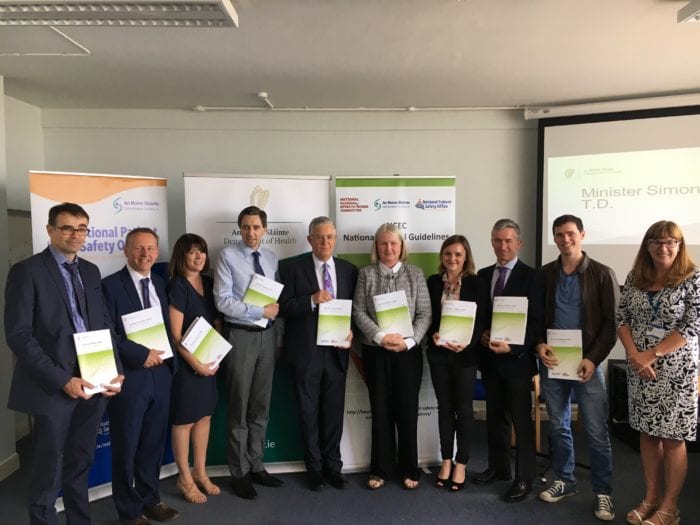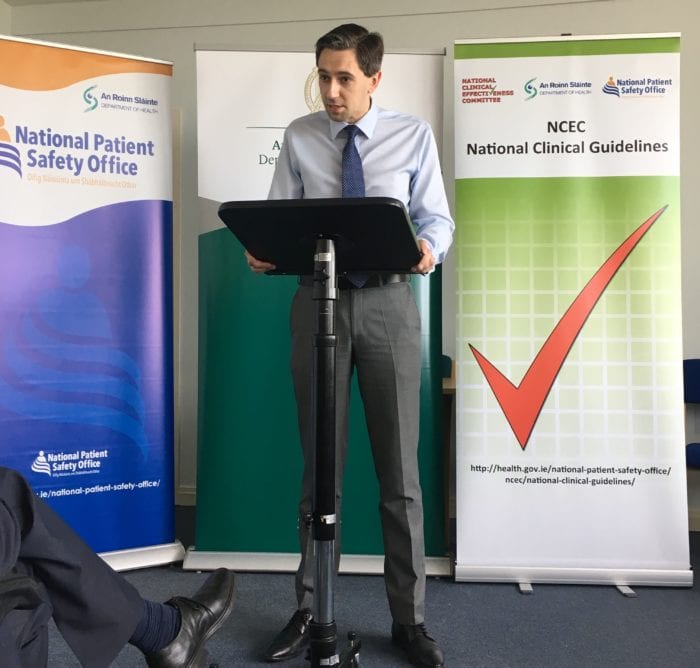On the 25th of June 2018, the Minister for Health will launch the first National Clinical Guideline for Adults living with Type 1 Diabetes. The publication of the guideline will see an agreed framework that will ensure all adults with type 1 diabetes regardless of where they live in Ireland, have equitable access to high quality care. The guideline will also act as a driver to standardise type 1 diabetes care nationally.
There are approximately 20,000 adults living with type 1 diabetes in the Republic of Ireland.
Long Term good health depend, perhaps more than with any other long-term condition, on full engagement of the person with type 1 diabetes in life-long day-to-day self-management.
However, current evidence shows the care of people with diabetes varies across Ireland. Care may be limited, unstructured and ad-hoc in some locations with limited access to specialist expert diabetes opinion in secondary care.
Only 42% of hospital diabetes services are currently offering adults with uncomplicated type 1 diabetes the recommended six monthly review appointments. Instead many patients are offered only infrequent appointments focused on annual review which is some cases are not even every calendar year but much longer.
“Even when you attend your clinical appointment, queues at clinics start at the same time for all patients, causing long waiting times. As a result of increasing demand on specialists time, I constantly hear from people that they, the patient, are training the junior doctor about diabetes and how they manage it rather than getting support from their medical team and rarely see the Consultant” said Dr Anna Clarke, Health Promotion and Research Manager, Diabetes Ireland.
Current services are not supportive of the person with Type 1 diabetes. In order to support the Type 1 diabetes community, the health service needs to provide informed, expert support, education and training as well as a range of other services and interventions for the prevention and management of long term health problems.
Dr Clarke continued “there is an immediate need for additional Advanced Nurse Practitioner’s in Type 1 diabetes who could avert hospital admissions and distress for people with diabetes by being available to resolve simple queries such as:
- Determining a plan of action for having taken too much or too little insulin,
- Dealing with too high or too low glucose levels
- How to cope with common ever day illness that affects diabetes
- Helping the individual to determine what is an emergency.
This is not an expensive option but a simple cost effective support mechanism that would bring cost savings almost immediately for the HSE through reduced hospital admissions”
It is accepted that group education for individuals living with type 1 diabetes results in improvement in quality of life, diabetes knowledge and diabetes control and as a result less diabetes complications. Despite an awareness of the importance of group education, only 409 adults with type 1 were recorded as having attended such programmes in Ireland in 2016, with only 159 having attended a programme which meets international standards.
Ms Niamh Downes, a person living with type 1 diabetes said – Given how important Education is to support self management, I think it should be “prescribed” rather than “offered”. And that every effort be made to make it accessible for the adult with type 1 diabetes, such as providing a medical certificate for workplaces. People with diabetes are experts in living with Diabetes but need education/support. This should be immediately available as a motivated educated patient will have much better outcomes.
“If implemented nationally, this framework would see improved patient outcomes and the incidence of diabetes related complications decreasing thus enhancing quality of life for people with type 1 diabetes. Diabetes Ireland wants to see immediate implementation of the guideline nationally with the required resources being made available” concluded Dr Clarke.
NCG-No-17-Adult-T1-DM_-Web-ready-copy




